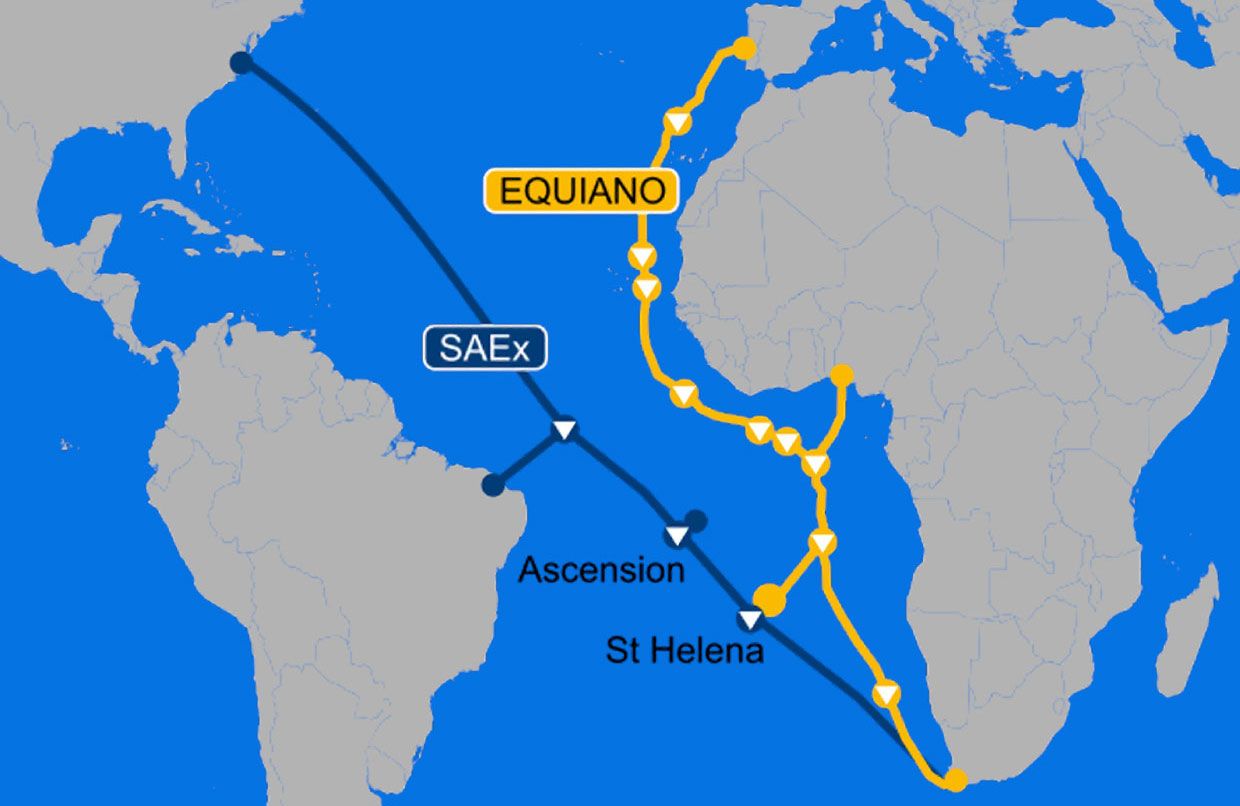Snag With Linking Google’s Undersea Cable to Saint Helena Could Leave Telecom Monopoly Entrenched
Last June, Google announced an addition to the company's planned Equiano undersea cable. In addition to stretching down the length of Africa's western coastline, a branch would split off to connect to the remote island of Saint Helena, part of the United Kingdom. The cable would be an incredible gain for the island of about 4,500 people, who today rely on a shared 50-megabit-per-second satellite link for Internet connections.
The cable will deliver an expected minimum of several hundred gigabits per second. That's far more data than the island's residents can use, and would in fact be prohibitively expensive for Helenians to afford. To make the cable's costs feasible, Christian von der Ropp-who started the Connect Saint Helena campaign in 2011-worked on the possibility of getting satellite ground stations installed on the island.
These ground stations would be crucial links between the growing number of satellites in orbit and our global network infrastructure. One of the biggest problems with satellites, especially lower-orbiting ones, is that they spend significant chunks of time without a good backhaul connection-usually because they're over an ocean or a remote area on land. The southern Atlantic, as you can surely guess, is one such spot. Saint Helena happens to be right in the middle of it.
Von der Ropp found there was interest among satellite companies to build ground stations on the island. OneWeb, Spire Global, and Laser Light have all expressed interest in building infrastructure on the island. The ground stations would be a perfect match for the cable's throughput, taking up the bulk of the cable's usage and effectively subsidizing the costs of high-speed access for Helenians.

But what seemed like smooth sailing for the cable has now run into another bump, however. The island government is currently at odds with the island's telecom monopoly, Sure South Atlantic. If the dispute cannot be resolved by the time the cable lands in late 2021 or early 2022, Helenians could see incredibly fast Internet speeds come to their shores-only to go nowhere once they arrive.
"The arrival of unlimited broadband places [Sure's] business at risk," says von der Ropp. He points out that, in general, when broadband access becomes essentially unlimited, users move away from traditional phone and television services in favor of messaging and streaming services like Skype, WhatsApp, and Netflix. If fewer Helenians are paying for Sure's service packages, the company may instead jack up the prices on Internet access-which Helenians would then be forced to pay.
Most pressing, however, is that the island's infrastructure simply cannot handle the data rates the Equiano branch will deliver. Because Sure is a monopoly, the company has little incentive to upgrade or repair infrastructure in any but the direst circumstances (Sure did not respond to a request for comment for this story).
That could give satellite operators cold feet as well. Under Sure's current contract with the island government, satellite operators would be forbidden from running their own fiber from their ground stations to the undersea cable's terminus. They would be reliant on Sure's existing infrastructure to make the connection.
Sure's current monopoly contract is due to expire on December 31, 2022-about a year after the cable is due to land on the island-assuming that the Saint Helena government does not renew the contract. Given the dissatisfaction of many on the island with the quality of service, that appears to be a distinct possibility. Right now, for example, Helenians pay 82 pounds per month for 11 gigabytes of data according to Sure's Gold Package. The moment they exceed their data cap, Sure charges them 5 pence per megabyte, which is a 670 percent increase in the cost of data.
11 GB per month may seem hard to burn through, but remember that for Helenians, that data covers everything-streaming, browsing the Internet, phone calls, and texting. For a Helenian that has exceeded their data cap, a routine 1.5 GB iPhone update could cost them an additional 75 pounds.
But it could be hard to remove Sure as a monopoly. If the island government ends the contract, Sure has a right of compensation for all assets on the island. Von der Ropp estimates that means the government would be required to compensate Sure in the ballpark of four or five million pounds. That's an extremely hefty sum, considering the government's total annual budget is between 10 and 20 million pounds.
"They will need cash to pay the monopoly's ransom," says von der Ropp, adding that it will likely be up to the United Kingdom to foot the bill. Meanwhile, the island will need to look for new providers to replace Sure, ones that will hopefully invest in upgrading the island's deteriorating infrastructure.
There is interest in doing just that. As Councilor Cyril Leo put it in a recent speech to the island's Legislative Council, "Corporate monopoly in St Helena cannot have the freedom to extract unregulated profits, from the fiber-optic cable enterprise, at the expense of the people of Saint Helena." What remains to be seen is if the island can actually find a way to remove that corporate monopoly.